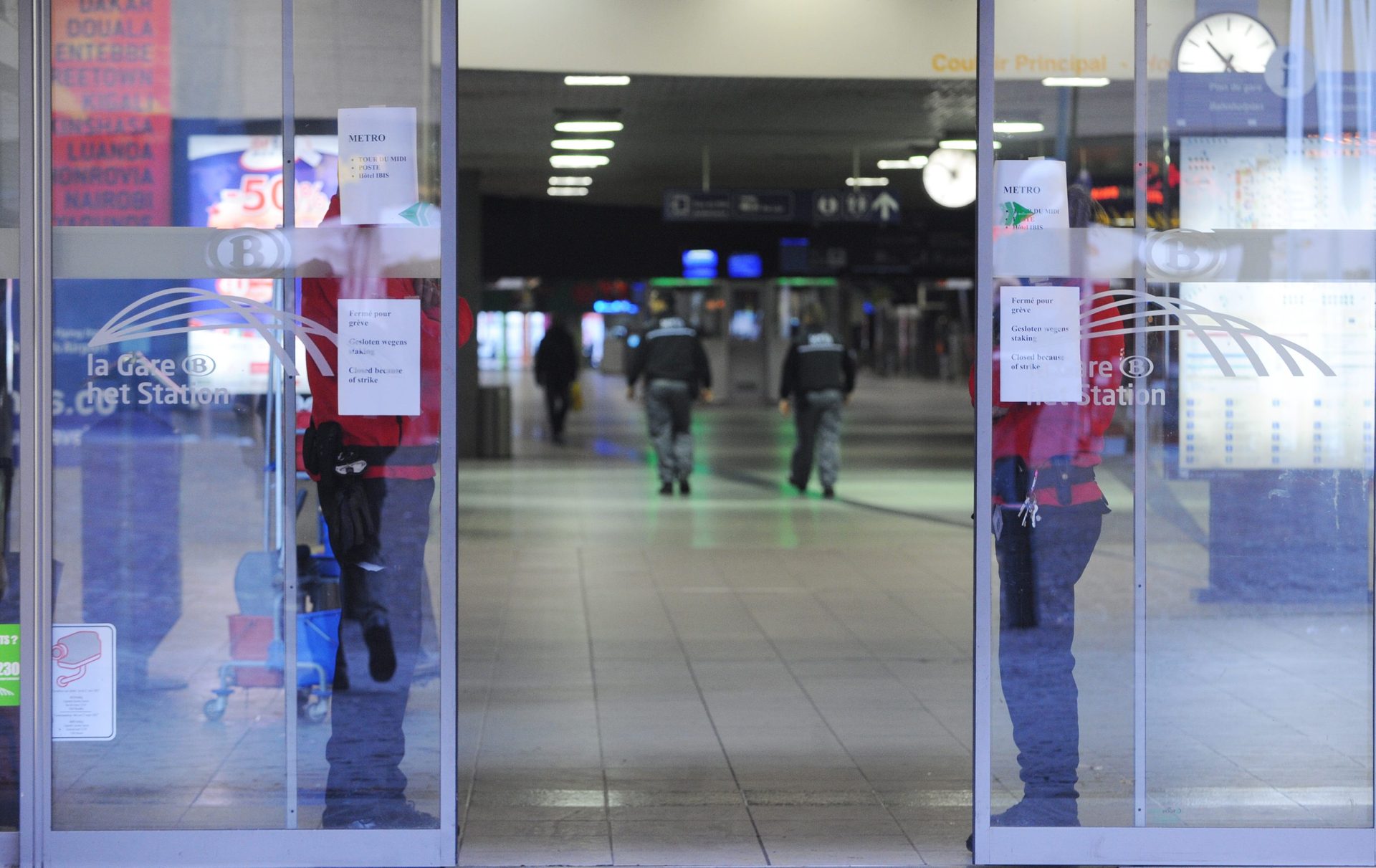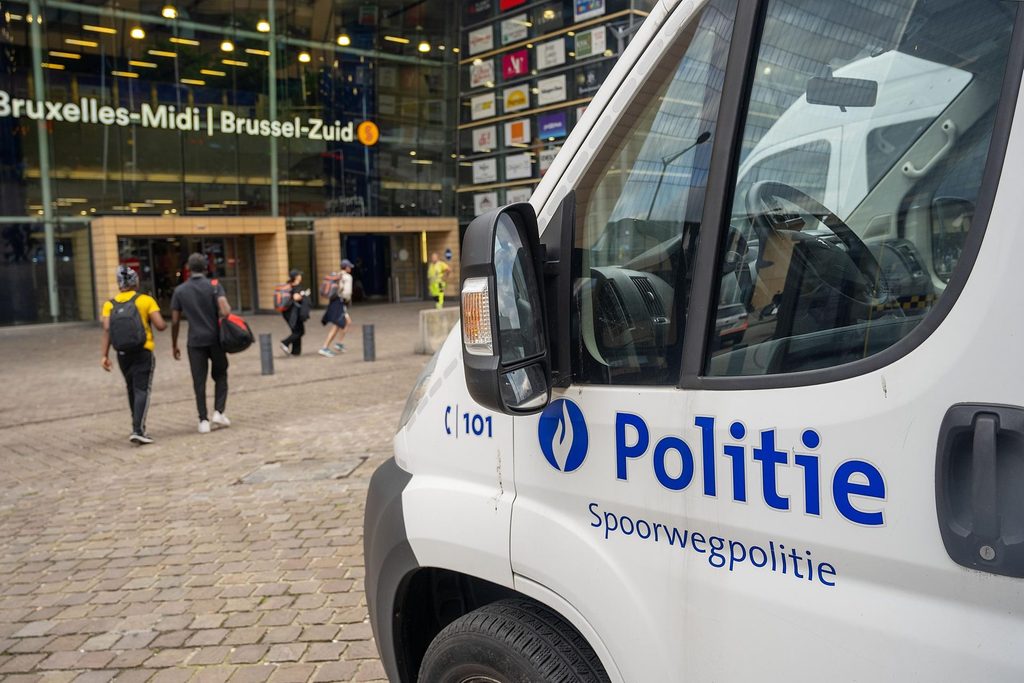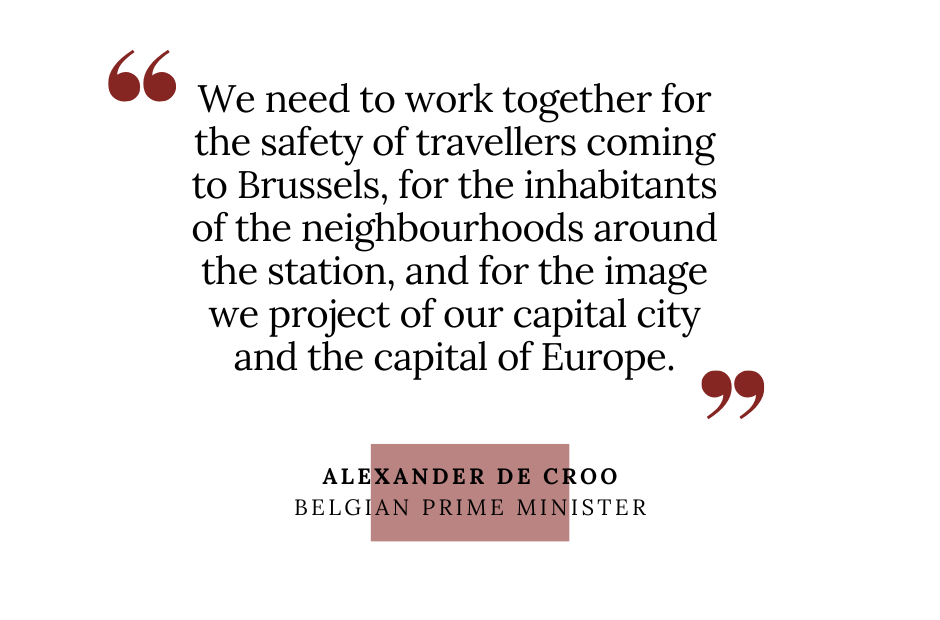Following calls from locals, traders, the Brussels Regional Government and several political parties, the Federal Government has now announced what steps it will be taking to tackle the escalating situation at the Midi train station.
While Brussels-Midi has always had its problems, the situation has become more pronounced in recent weeks with alarm bells being raised by a number of concerned actors. The area has been making headlines for its fast-rising crime rate – partly driven by the rapid rise of crack use in the capital. Many believe the issue is tarnishing the reputation of the city, particularly as an international rail hub, and has contributed to growing feelings of insecurity among locals.
On Thursday, after the Brussels-Capital Region indicated it needed additional support, Prime Minister Alexander De Croo said he would be taking matters into his own hands by appointing two specialised coordinators – while also stating that the complex problem cuts across several levels of government.
It has since been confirmed as a Federal Government priority, with De Croo and Home Affairs Minister Annelies Verlinden announcing they will be taking several steps to "restore the liveability and safety of the station and its immediate surrounding."
"The Brussel-Midi Station situation is complex and deserves that we tackle the problems together. This is for the safety of travellers coming to Brussels, for the inhabitants of the neighbourhoods around the station, and for the image we project of our capital city and the capital of Europe," De Croo said in a statement on Friday.
First steps
In the first instance, the National Crisis Centre (NCCN) has now been tasked with bringing together all the relevant partners from the various levels of government and services involved. The roundtable will include the local municipal authorities, the Brussels-Capital Region, the competent federal authorities, the national railway operator SNCB and Infrabel.
The idea, the Federal Government says, is to bring an end to the ongoing blame game between authorities.
"The first coordination meetings will be organised very soon to list actions and give immediate substance to short-term operational initiatives," the statement read. Once the liveability has been improved and the safety plan has been drawn up, the task will be transferred to the region once again.
Both De Croo and Verlinden, who earlier this week argued that the initiative to solve the issue must come from Brussels Minister-President Rudi Vervoort, are now stressing that the "commitment and fulfilment of responsibility by all involved are the critical factor for success."
Vervoort, who welcomed the new measures, stated that the situation requires that each institutional actor assume and exercise its responsibilities. "The Federal Government and the municipalities with their police zones in the fight against drug crime, the Federal Government for health policy and migration management, and the Region and the municipalities in the areas of social and health services and cleanliness."
Security-focused solution
In the longer term, the problem will be tackled by working on three axes, with the first being tackling criminal phenomena and illegality in and around the station.
On this front, the Federal Police and the local police zone Brussels-South will work together with the Immigration Department and the SNCB security services, among others.
The second part of the plan will focus on tackling the condition of homeless people, those in need of assistance, addiction and health problems and public cleanliness in the area of the station building and its immediate surroundings.
Again, this will require collaborative efforts, the statement highlighted: the Brussels-Capital Region, the relevant municipal and city departments and the federal health and immigration services will be brought together to develop the approach. Meanwhile, for this specific aspect, the national drugs commissioner will provide support from her expertise area.

The security services of SNCB, among others, will be involved in the list of actions to improve the safety around the station. Credit: Belga/ Herwig Vergult
The third axis focuses on the infrastructural adaptation works that are planned in the area, which De Croo and Verlinden argued will have a significant impact on improving security around the station building.
Besides the existing efforts that have already been made by SNCB and Infrabel, the Brussels-Capital Region will look into setting up enhanced camera surveillance.
Every party involved at the operational and executive level, will "work out an action plan for each of the axes, and within their own competencies, with the short-, medium- and long-term actions, under the overall coordination of the National Crisis Centre," the statement noted.
Both ministers explained that pending the drafting of the action plan, this would mean operational initiatives that have an immediate effect on the sense of insecurity can already be taken in the very short term.
However, the situation at Brussels-Midi Station has been exacerbated by the increase in homeless people, including migrants, and by drug trafficking and consumption.


